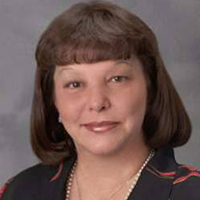Instant Discount
Purchase Any WEBINAR And Get Off
|
Speaker |
Sue Dill Calloway |
|
Industry |
Nursing |
|
Speciality |
Nursing |
|
Available |
All Days |
|
Duration |
120 Minutes |
Description
Every hospital or ambulatory surgery center that accepts Medicare or Medicaid reimbursement should listen to this important program! Imagine a CMS (Center for Medicare and Medicaid Services) surveyor who shows up to do a CMS survey such as a complaint, certification, or validation survey. The surveyor pulls out the final infection control worksheet which has a section on safe injection practices. Now compliance with safe injection practices will be assessed heavily by the surveyors and non-compliance has been used in the courtroom against healthcare providers.
This is especially important in light of a number of cases where patients have died or suffered an adverse event in the past year. CMS has issued many important survey memos related to safe injection practices and infection control. Healthcare facilities are expected to comply with the CDC's ten standards on safe injection practices. CMS issued another survey memo on four unsafe injection practices that can end up with a second knock at the hospital’s door from the state epidemiologist. Many healthcare facilities have been found to be out of compliance.
Do you know what the ten CDC safe injection requirements are and how do you ensure you are in compliance? Does your ED physician wear a mask when doing an LP or your anesthesiologist or CRNA when they insert an epidural for pain relief? Recent CDC resources will be discussed.
If they make it in a single dose then the healthcare facility needs to purchase it. Do you know what the rules are now for multi-dose vials? Does your staff know these cannot be taken into patient rooms including the OR with exception? Do you know what the beyond use data is as to when medication must be given when drawn up?
Every hospital should have a policy on this. All staff, including physicians, should be trained on this. Staff needs to be educated on the ten CDC standards for safe injection practices and assessment with compliance should be done?
This program will also cover the guidelines issued by ISMP on IV push medication for adults. CMS requires hospitals to follow standards of care such as those issued by ISMP. The policy should be amended to include these standards in addition to the education of the staff.
Injected medicines are common in healthcare today. Injection safety or safe injection practices are measures taken to perform injections in an optimally safe manner for patients. Many hospitals, ASCs, dental offices, and other facilities have just taken for granted that this was being performed appropriately but recent studies show this to be untrue. A physician in Nevada was sent to prison for being out of compliance with these standards. State boards have taken away the licenses of nurses and physicians and pharmacists for violating safe injection practices.
Learning Objectives
Outline
Safe Injection Practices:-
Who Should Attend

(RN, MSN, JD)
Sue Dill Calloway, RN, MSN, JD, is the president of Patient Safety and Healthcare Consulting and Education company with a focus on medical-legal education especially Joint Commission and the CMS hospital CoPs regulatory compliance. She also lectures on legal, risk management, and patient safety issues. She was a director for risk management and patient safety for five years for the Doctors Company. Sue Dill Calloway was the past VP of legal services at a community hospital in addition to being the privacy officer and the compliance officer. She was a medical malpractice defense attorney for ten years. She has 3 nursing degrees in addition to a law degree.
Sue Dill Calloway is a well-known lecturer and the first one in the country to be a certified professional in CMS. She also teaches the course for the CMS certification program. She has written 102 books and thousands of articles.